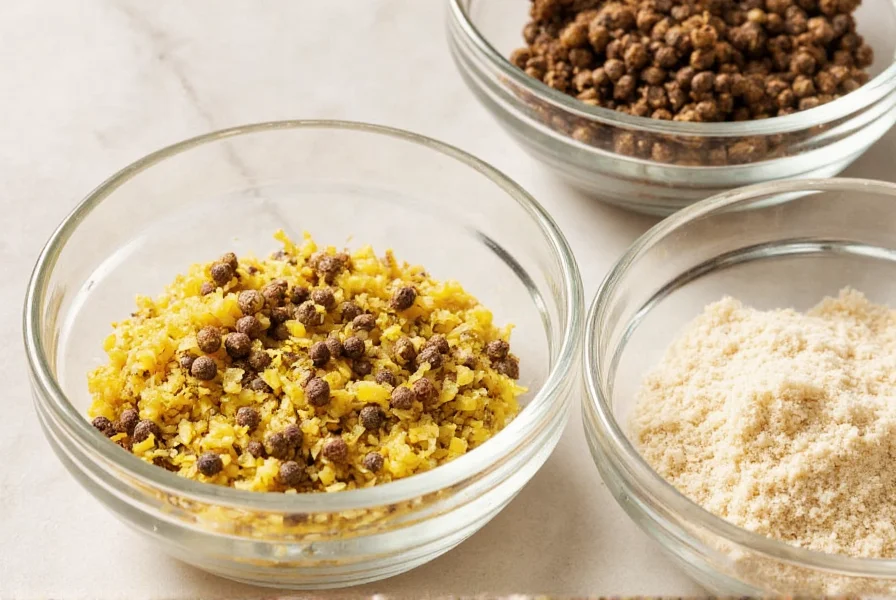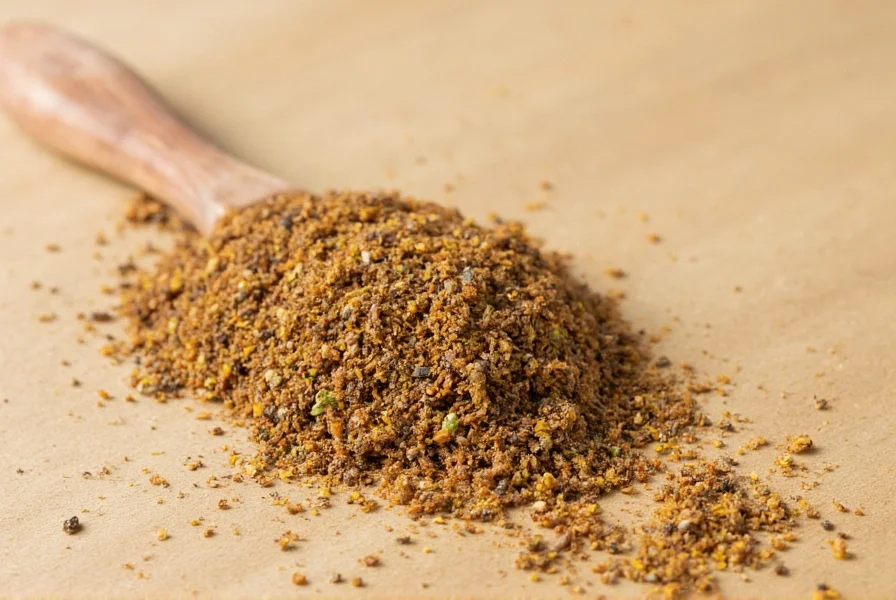Creating the perfect homemade lemon pepper dry rub requires understanding the balance between citrus brightness, peppery heat, and supporting flavors. This versatile seasoning works exceptionally well with poultry, fish, and vegetables, providing a restaurant-quality finish to your home cooking.
Essential Ingredients for Authentic Lemon Pepper Dry Rub
The foundation of any exceptional lemon pepper dry rub consists of three critical components: citrus element, pepper profile, and supporting seasonings. For the citrus component, fresh lemon zest provides superior flavor compared to dried alternatives, though high-quality dried lemon peel works well for longer shelf life. The pepper element should combine coarse black pepper for texture with additional pepper varieties like white or pink peppercorns for complexity.

Supporting seasonings transform a basic blend into a professional-quality rub. Salt is essential for flavor enhancement and moisture control, while garlic powder adds depth without burning during cooking. Onion powder, paprika, and dried herbs like thyme or oregano round out the flavor profile without overpowering the citrus notes.
Step-by-Step Homemade Lemon Pepper Dry Rub Recipe
Creating your own lemon pepper dry rub from scratch ensures freshness and allows customization to your taste preferences. This basic recipe yields enough for multiple applications and stores well:
| Ingredient | Measurement | Function |
|---|---|---|
| Lemon zest (dried) | 2 tablespoons | Primary citrus flavor |
| Coarse black pepper | 3 tablespoons | Heat and texture |
| Sea salt | 1½ tablespoons | Flavor enhancer |
| Garlic powder | 1 tablespoon | Depth and complexity |
| Onion powder | 1 teaspoon | Background sweetness |
| Dried thyme | ½ teaspoon | Herbal note |
Application Techniques for Maximum Flavor Impact
Proper application makes the difference between a superficial seasoning and deeply flavorful results. For best results with your lemon pepper dry rub:
- Pat proteins completely dry before applying the rub to ensure proper adhesion
- Apply generous, even coating using your fingertips in a gentle pressing motion
- Allow minimum 30 minutes resting time before cooking (2 hours ideal for thicker cuts)
- For grilled applications, create two-zone fire to prevent burning the sugar content
- Reapply lightly after flipping for grilled items to maintain flavor intensity
When preparing grilled chicken with lemon pepper dry rub, the skin acts as a flavor barrier—gently loosen the skin and apply some rub directly to the meat surface for deeper penetration. For fish applications, reduce salt content by 25% and minimize resting time to prevent over-seasoning delicate flesh.
Ideal Food Pairings for Lemon Pepper Seasoning
Certain proteins and vegetables particularly benefit from lemon pepper dry rub's bright, peppery profile:
- Chicken: Works exceptionally well with both white and dark meat, especially when grilled or roasted
- Fish: Complements mild white fish like cod, halibut, and tilapia beautifully
- Shrimp: Creates a restaurant-quality finish when grilled or broiled
- Veggies: Enhances asparagus, zucchini, and bell peppers when roasted
- Pork: Pairs surprisingly well with tenderloin or chops for a citrus twist
For those exploring variations of lemon pepper seasoning, consider adding smoked paprika for depth or a touch of cayenne for heat. A lemon garlic pepper dry rub variation simply increases garlic powder to 1½ tablespoons while maintaining other proportions.
Storage Guidelines for Homemade Dry Rubs
Proper storage maintains your homemade lemon pepper dry rub's potency and prevents moisture absorption. Store in an airtight container away from light and heat sources. When stored correctly:
- Maximum freshness: 2-3 months
- Acceptable quality: Up to 6 months
- Signs of degradation: Faded color, diminished aroma, clumping
For extended shelf life, consider storing small portions in the freezer. The cold temperature preserves volatile citrus oils better than room temperature storage. Always use dry utensils when handling your dry rub to prevent moisture introduction.
Common Mistakes to Avoid with Dry Rubs
Even experienced cooks make these frequent errors with lemon pepper dry rub applications:
- Applying rub to wet surfaces (prevents proper adhesion)
- Not allowing sufficient resting time before cooking
- Using fine-ground pepper which burns easily
- Over-applying, creating an imbalanced flavor profile
- Adding sugar-containing rubs too early in grilling process
When preparing grilled chicken with lemon pepper dry rub, many home cooks make the mistake of flipping too frequently, which disrupts crust formation. Allow proper searing time—typically 3-4 minutes per side for chicken pieces—before turning.
Frequently Asked Questions
Can I use fresh lemon zest in my dry rub?
Yes, but with important considerations. Fresh lemon zest contains moisture that can cause clumping and reduce shelf life. If using fresh zest, incorporate it immediately before application rather than storing in the rub mixture. For longer-lasting homemade lemon pepper dry rub, dried lemon peel provides more consistent results.
How much dry rub should I use per pound of meat?
The ideal ratio is 1-2 tablespoons of lemon pepper dry rub per pound of meat. Start with 1 tablespoon for delicate proteins like fish, and use 1½-2 tablespoons for heartier meats like chicken or pork. Remember that proper application technique matters as much as quantity—press the rub gently into the surface rather than just sprinkling it on.
Does lemon pepper dry rub work for vegetarian applications?
Absolutely. Lemon pepper dry rub enhances grilled vegetables like asparagus, zucchini, bell peppers, and mushrooms beautifully. For vegetarian applications, consider reducing salt content by 25% since vegetables generally require less seasoning than proteins. Tofu and tempeh also absorb the flavors exceptionally well when properly pressed and coated.
Can I convert this dry rub into a wet marinade?
Yes, but with adjustments. To create a lemon pepper marinade from your dry rub, combine 3 parts olive oil with 1 part dry rub. Add 1-2 tablespoons of acid (lemon juice or vinegar) per cup of mixture. Note that marinating times should be limited to 2 hours for poultry and 30 minutes for fish to prevent texture changes from the acid component.











 浙公网安备
33010002000092号
浙公网安备
33010002000092号 浙B2-20120091-4
浙B2-20120091-4